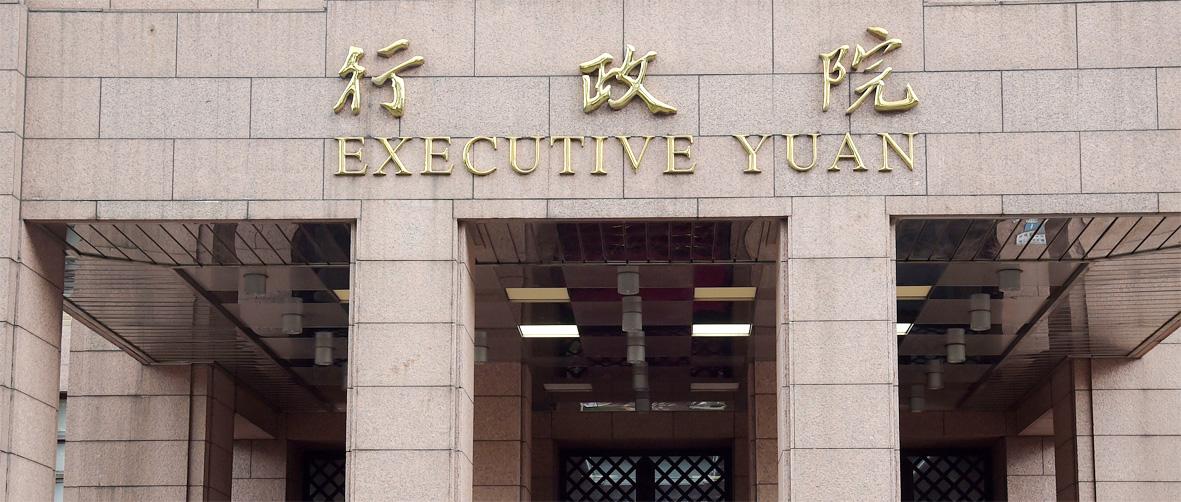The Executive Yuan’s Department of Cybersecurity last month detected 99,293 cybersecurity threats involving the government’s backbone networks, or the highest number of monthly incidents in nearly two years, according to the department’s monthly cybersecurity bulletin.
The report said that 40 percent of the incidents have yet to be investigated, while 23 percent were confirmed cyberattacks and 18 percent were probes.
While the amount of cyberattacks and probes falls within expectations, the large number of unidentified incidents is cause for concern, department Director-General Jyan Hong-wei (簡宏偉) said yesterday.

Photo: CNA
“In some cases, a judgement cannot be made immediately following an incident report,” he said.
“These incidents have to be matched against the tracking database, while further analysis and investigation could take time, ranging from many months to a year,” he said.
“We have to understand what they are: whether they are a novel form of attack or whether they foreshadow a large-scale attack,” he added.
Fifty-two of last month’s incidents were reported while the incident was happening, and the majority of those were detected by information technology centers, the report said.
Among these incidents, 53.8 percent involved malware, denial of service attacks and insertion of cryptocurrency mining software, the report added.
Notably, a state apparatus listed is category A regarding cybersecurity responsibility suffered a breach of its noncore operating system in the form of Domain Name System tunneling, the report said.
It is believed that a hacker used a Structured Query Language injection technique to attack a platform for renting public venues and obtained system administrator privileges, the report said.
The affected server was removed from the network and its data was backed up for outside security firms to examine, it said.
“This incident illustrates the point that hackers might target noncore operating systems for attack,” the report said.
“This really should not have happened,” Jyan said. “Although most apparatuses are focused on securing core operating systems, the department remains highly concerned with the noncore systems that could become gaps in our defense.”
“The monthly report is a reminder to government agencies that all systems need to be tested for weaknesses and their vulnerabilities patched,” Jyan added.

A Ministry of Foreign Affairs official yesterday said that a delegation that visited China for an APEC meeting did not receive any kind of treatment that downgraded Taiwan’s sovereignty. Department of International Organizations Director-General Jonathan Sun (孫儉元) said that he and a group of ministry officials visited Shenzhen, China, to attend the APEC Informal Senior Officials’ Meeting last month. The trip went “smoothly and safely” for all Taiwanese delegates, as the Chinese side arranged the trip in accordance with long-standing practices, Sun said at the ministry’s weekly briefing. The Taiwanese group did not encounter any political suppression, he said. Sun made the remarks when

The Taiwanese passport ranked 33rd in a global listing of passports by convenience this month, rising three places from last month’s ranking, but matching its position in January last year. The Henley Passport Index, an international ranking of passports by the number of designations its holder can travel to without a visa, showed that the Taiwan passport enables holders to travel to 139 countries and territories without a visa. Singapore’s passport was ranked the most powerful with visa-free access to 192 destinations out of 227, according to the index published on Tuesday by UK-based migration investment consultancy firm Henley and Partners. Japan’s and

BROAD AGREEMENT: The two are nearing a trade deal to reduce Taiwan’s tariff to 15% and a commitment for TSMC to build five more fabs, a ‘New York Times’ report said Taiwan and the US have reached a broad consensus on a trade deal, the Executive Yuan’s Office of Trade Negotiations said yesterday, after a report said that Washington is set to reduce Taiwan’s tariff rate to 15 percent. The New York Times on Monday reported that the two nations are nearing a trade deal to reduce Taiwan’s tariff rate to 15 percent and commit Taiwan Semiconductor Manufacturing Co (TSMC, 台積電) to building at least five more facilities in the US. “The agreement, which has been under negotiation for months, is being legally scrubbed and could be announced this month,” the paper said,

MIXED SOURCING: While Taiwan is expanding domestic production, it also sources munitions overseas, as some, like M855 rounds, are cheaper than locally made ones Taiwan and the US plan to jointly produce 155mm artillery shells, as the munition is in high demand due to the Ukraine-Russia war and should be useful in Taiwan’s self-defense, Armaments Bureau Director-General Lieutenant General Lin Wen-hsiang (林文祥) told lawmakers in Taipei yesterday. Lin was responding to questions about Taiwan’s partnership with allies in producing munitions at a meeting of the legislature’s Foreign Affairs and National Defense Committee. Given the intense demand for 155mm artillery shells in Ukraine’s defense against the Russian invasion, and in light of Taiwan’s own defensive needs, Taipei and Washington plan to jointly produce 155mm shells, said Lin,